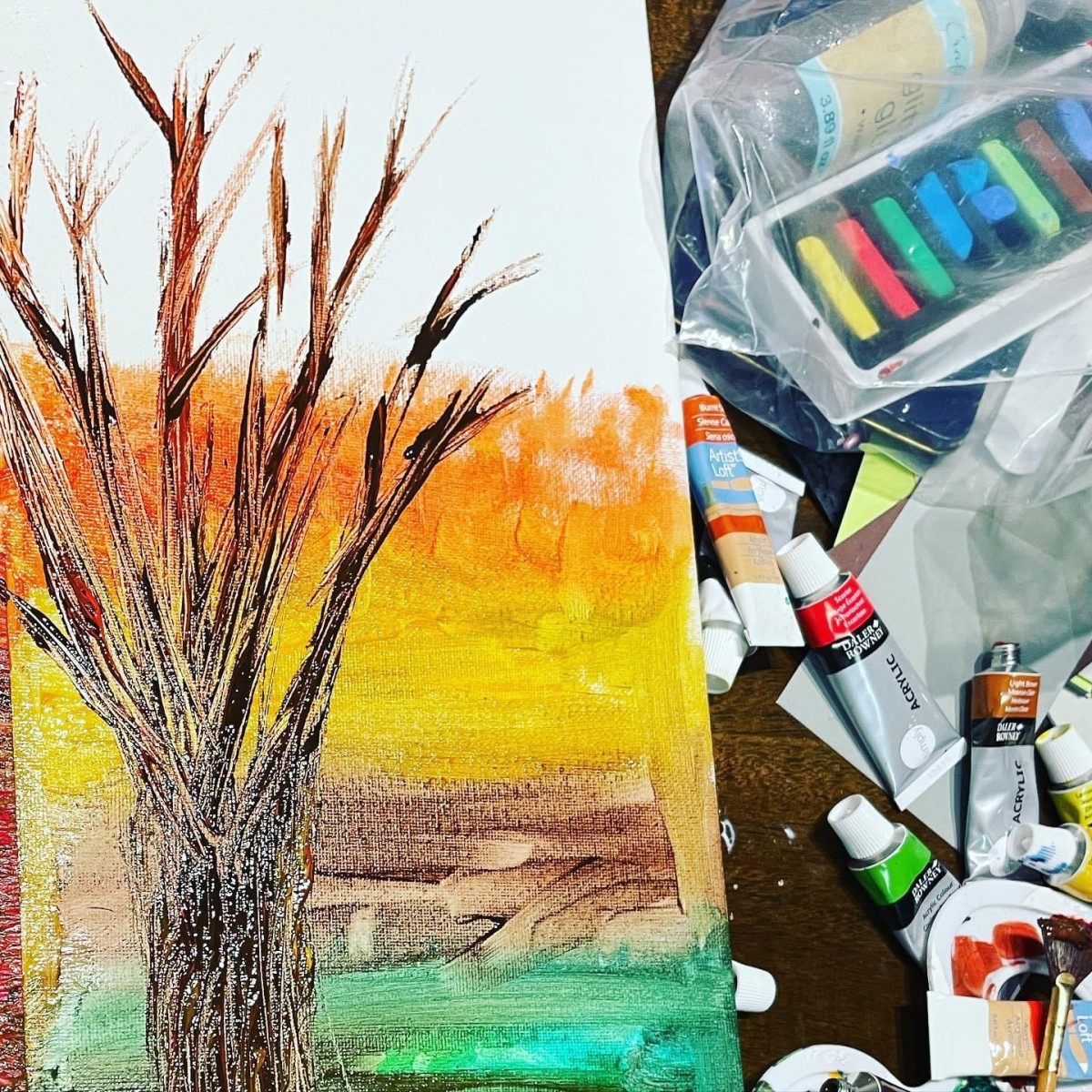10 Simple Hobbies That Reduce Stress (Backed by Science)
You're lying in bed at midnight, mind racing about tomorrow's deadline. Your shoulders are tense. Your jaw is clenched. Sound familiar?
Chronic stress has become our daily reality. Between endless social media notifications, work pressures, and stressful situations that keep piling up, you're feeling it. But here's the thing: you don't need expensive therapy or complicated solutions.
The answer might be simpler than you think: pick up a hobby! Here are ten science-backed activities that actually work to reduce stress and improve your mental health.

Why Hobbies Actually Work
Here's what researchers at Drexel University discovered: just 45 minutes of creative activity dropped cortisol levels in 75% of participants. Doesn't matter if you're terrible at art or never picked up a paintbrush. Your stress hormones still plummet while your brain releases endorphins—those natural mood boosters that make you feel genuinely better.
Ever notice how time flies when you're doing something you love? That's called "flow." Your brain stops obsessing over your problems and gets completely absorbed in what you're doing. Studies show people who regularly do creative activities have lower stress levels and better overall wellness.
The benefits are pretty amazing:
- Your mind gets a break from worrying
- You feel accomplished when you finish something
- Your focus improves (helpful for everything else too)
- You connect with people who share your interests
- You get to express yourself creatively
Ready to try it? Here are ten hobbies that science says really work:
1. Journaling (Yes, Really)
Your thoughts are bouncing around your head like ping pong balls. Writing them down literally gets them out of your brain and onto paper. It's like decluttering, but for your mind.
The a study published Anxiety, Stress and Coping found that people who write about their feelings have less anxiety, better moods, and even better physical health. It works especially well for managing symptoms of depression.
To begin journaling:
- Find a quiet space where you won't be interrupted.
- Choose a notebook or digital platform that feels comfortable.
- Start by simply writing whatever comes to mind without judgment. There are no rules, no right or wrong way to do it.
- Consider prompts if you're stuck, such as: "What am I grateful for today?" or "What's causing me stress, and how can I address it?"
Many have found solace in this simple practice:
"I have found out it helps tremendously with my anxiety and depression. The journal is no therapist but sometimes I just need to get what I'm feeling out and not have to worry about judgement. The journal doesn't talk back and sometimes that can be therapeutic." (user Unfair-Shower-6923 on reddit)
Embrace the blank page as an opportunity for profound self-care and personal insight.
2. Take a Walk Outside (No Seriously, Just Walk)
Put down your phone and go outside. Even 15 minutes in a park literally changes what's happening in your body. Your blood pressure drops. Your muscles relax. Stress hormones decrease.
The Japanese have a term for this: "forest bathing." Sounds fancy, but it just means hanging out around trees. Research in Environmental Research proves it works. Your senses get busy with real things—bird sounds, tree smells, actual fresh air—instead of the endless scroll of social media.
To incorporate nature walks:
- Set aside a specific time each day or week, even if it's just 15-20 minutes.
- Find a nearby park, greenway, or natural area.
- Focus on your senses: what do you see, hear, smell, and feel?
- Leave your phone behind or keep it on silent to truly disconnect from stressful situations.
The simplicity of a walk in nature can be profoundly restorative. Let the natural world gently guide you towards tranquility and improved wellness.
3. Knitting or Crocheting (Your Grandma Was Onto Something)
There's something hypnotic about the repetitive motion of needles or hooks. Your hands get busy, your mind quiets down, and before you know it, you're completely absorbed in counting stitches.
Studies have found that people who knit or crochet have lower heart rates, reduced blood pressure, and less anxiety. The repetitive motions increase dopamine levels and decrease tension, creating what researchers call "meditative effects". Plus, you end up with something tangible—a scarf, a blanket, proof that you can actually make things with your hands.
To begin knitting or crocheting:
- Start with simple projects, like a basic scarf or a dishcloth.
- Numerous online tutorials and beginner kits are available.
- Focus on the rhythm of the stitches rather than perfection.
- Enjoy the process of creating something with your own hands.
It's definitely a real thing! I have a high blood pressure, and a fear of doctors. So having my BP taken by a doctor results in the 170s, with an added irregular heartbeat, despite medication. (For reference: 120 is good, 140 is really bad, so 170 is straight up awful.)
During my last visit however, I asked if I could do some yarning while he checks my vitals, as I thought it might calm me. Result: Heart ticking like a clock, and a BP in the 110s. I couldn't believe it.
Allow the gentle rhythm of fiber arts to weave a tapestry of calm into your daily life.
Hobby 4: Practicing Basic Yoga or Stretching
Yoga and stretching combine physical activity with breathing techniques that shift the nervous system from "fight or flight" to "rest and digest." Research from Harvard Health Publishing shows regular practice reduces symptoms of depression and anxiety while improving sleep. Even simple stretches provide health benefits for mental health and offer cathartic release from chronic stress.
To incorporate basic yoga or stretching:
- Search for beginner-friendly online yoga or stretching routines.
- Focus on gentle movements and synchronize them with your breath.
- Pay attention to how your body feels, without pushing past discomfort.
- Even 10-15 minutes a day can make a significant difference in managing stress levels.
Embrace the quiet power of movement and breath to cultivate inner peace and improved well-being.
5. Adult Coloring Books (Don't Roll Your Eyes)
Before you dismiss this as "kid stuff," hear me out. Adult coloring books are having a moment, and there's actual science behind it.
When you're coloring, your brain can't multitask. It has to focus on staying in the lines, picking colors, and making decisions about shading. This shuts down the part of your brain that's usually spinning with worry (scientists call it the amygdala).
Studies have found that people who color for just 20 minutes have less anxiety and better moods afterward. It's like meditation, but with colored pencils. Way better than mindlessly scrolling your phone during free time.
To engage in mindful coloring:
- Choose an adult coloring book and a set of pencils or markers that appeal to you.
- Find a quiet, comfortable space.
- Focus on the colors, the lines, and the process of filling each section.
- Let go of judgment and simply enjoy the sensation of the activity.
Unleash your inner artist and discover the profound calm that mindful coloring can bring to your daily life.
Hobby 6: Exploring Simple Culinary Creations
Cooking creates a multi-sensory therapeutic experience. Following recipes, measuring ingredients, and transforming raw materials requires focus and engages touch, smell, and taste, drawing you into the present moment. Research in the Journal of Positive Psychology shows creative activities like cooking improve mental health and provide effective stress management. Simple kitchen DIY projects become stress-relieving hobbies that nourish both body and soul.
To explore simple culinary creations:
- Start with straightforward recipes that don't require extensive skill or ingredients.
- Focus on the process: the chopping, mixing, and stirring.
- Engage your senses: notice the textures, smells, and colors.
- Enjoy the fruits of your labor, sharing if you wish, or savoring a meal you've prepared for yourself.
Turn your kitchen into a canvas for calm, where simple ingredients transform into soothing satisfaction and improved wellness.
Hobby 7: Listening to Music Actively
Active music listening powerfully influences emotions and physiology. Specific genres lower heart rate, reduce blood pressure, and decrease cortisol. Research in PLOS ONE shows music therapy reduces stress levels and improves mental health outcomes. Classical music, nature sounds, and slow tempos are particularly effective. Consider podcast content focused on wellness as audio therapy during free time.
To listen to music actively:
- Choose music specifically selected for relaxation or mood enhancement.
- Find a quiet space where you can sit or lie down comfortably.
- Close your eyes and focus solely on the sounds.
- Notice the instruments, the vocal nuances, and how the music makes you feel.
Allow the universal language of music to wash over you, soothing your mind and uplifting your spirit while providing effective stress management.
Hobby 8: Caring for Indoor Plants
Indoor plant care reduces chronic stress and improves mental health. Watering, pruning, and observing growth fosters a sense of accomplishment and connection to living things—a respite from social media overwhelm. Research in the Journal of Health Psychology shows engaging with plants lowers stress levels, improves mood, and enhances concentration while purifying air. This self-care provides cathartic benefits for your daily life.
To care for indoor plants:
- Start with low-maintenance plants like snake plants, ZZ plants, or Pothos.
- Learn about their specific needs for light and water.
- Establish a routine for checking on your plants.
- Observe their growth and respond to their needs.
u/Gracilis67 on reddit says that "plants are my mental health therapy. Literally."
I wish I had gotten into this hobby earlier. It would have saved me from so much stress. I went through a lot of hardships in the past few years.
Whenever I feel down or stressed out, I just pick up one of the plants and stare at it, appreciating the beauty. Sometimes I touch it to help me calm down (not sure if this is an ADHD thing or not, I've never been tested before). For example String of Pearls. I love feeling the pearls.
Cultivate tranquility in your home by nurturing the simple beauty of indoor plants, creating one of the most accessible hobbies for stress relief.
Hobby 9: Engaging in Light Reading
Reading transports you to another world, diverting attention from stressful situations. Studies from the University of Sussex show reading reduces stress levels by 68%, outperforming music or walking. Reading requires focus that quiets the mind and improves cognitive function, offering both mental stimulation and relaxation. This self-care provides an excellent alternative to social media during free time.
To engage in light reading:
- Choose books or articles that genuinely interest you and are not overly demanding.
- Find a comfortable, quiet spot where you can read uninterrupted.
- Set aside dedicated time each day, even if it's just 15-20 minutes.
- Allow yourself to become fully immersed in the story or information.
Open a book and discover an immediate gateway to tranquility and mental health rejuvenation.
Hobby 10: Learning a New, Simple Skill
Learning a new hobby or simple skill provides focused engagement, a sense of accomplishment, and healthy distraction from stress. Whether calligraphy, ukulele, origami, or juggling, acquiring new knowledge supports mental health. Learning activates different brain parts, diverting attention from stressful situations. Small victories boost self-esteem and counter feelings of helplessness from chronic stress and burnout. Simple DIY projects provide cathartic benefits.
To learn a new, simple skill:
- Choose something that genuinely sparks your interest, even if it seems trivial.
- Break down the skill into small, manageable steps.
- Find online tutorials, apps, or beginner guides, or go to your public library and find a book! (many public libraries have dedicated sections on hobbies)
- Focus on the process of learning and improvement, not on immediate perfection.
Embrace the joy of discovery and the quiet satisfaction of expanding your capabilities. What new hobby will you acquire to enrich your life and soothe your mind?
How to Actually Stick With It
Look, I get it. You're busy. The last thing you need is another item on your to-do list. But here's the thing: hobbies aren't supposed to stress you out more.
Start ridiculously small. Don't aim for an hour of journaling on day one. Try five minutes. Color one page. Take one walk around the block.
Make it stupid easy. Keep your journal next to your bed. Leave coloring books on your coffee table. Put your walking shoes by the door.
Don't aim for perfect. Your first knitting project will look terrible. Your first few journal entries might be boring. That's literally the point—there's no pressure to perform.
Pick what actually appeals to you. If you hate being outdoors, don't force nature walks. If you're not crafty, skip the knitting. The best hobby is the one you'll actually do.
The research is clear: people who regularly do activities they enjoy have lower stress levels, better sleep, and improved mental health. Your phone will still be there when you get back. Your stress? Maybe not so much.








